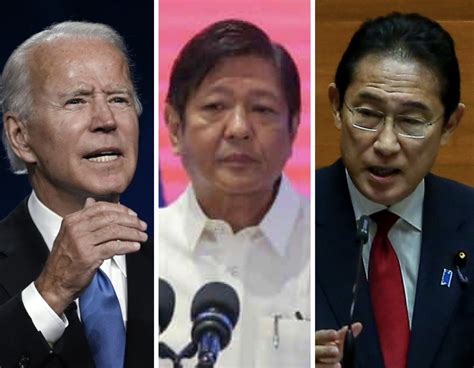By Luke Allen
Military, Political Analyst
lukeallenmanila@journalist.com
In the aftermath of the highly contentious Tri-Lateral Summit between the United States, Philippines, and Japan, Beijing has issued a sharp and unequivocal response, expressing its strong opposition to what it perceives as an attempt to manipulate bloc politics and undermine China’s strategic security and interests. The summit, which brought together key players in the Indo-Pacific region, has sparked a war of words between Beijing and the participating countries, highlighting the deepening geopolitical rifts in the area.
Mao Ning, the spokesperson for the Chinese Foreign Ministry, minced no words in condemning the Tri-Lateral Summit and the ensuing agreements and declarations that emerged from the meeting. In a strongly-worded statement, Mao Ning asserted, “China firmly opposes the relevant countries manipulating bloc politics, and firmly opposes any behavior that provokes or lays plans for opposition, and hurts other countries’ strategic security and interests. We firmly oppose engaging in closed cliques that exclude others in the region.”
The Chinese Foreign Ministry spokesperson’s remarks underscore Beijing’s deep concerns about the perceived formation of exclusive alliances and partnerships that could potentially marginalize China’s influence and interests in the region. The Tri-Lateral Summit, which aimed to enhance cooperation on security and economic issues, has been viewed by Beijing as a deliberate move to isolate China and undermine its position in the Indo-Pacific.
Mao Ning went on to criticize Japan and the Philippines for their participation in the summit, cautioning against actions that could harm China’s interests. She stated, “Japan and the Philippines can, of course, develop normal relations with other countries, but they should not invite fractional opposition into the region, much less engage in trilateral cooperations at the cost of hurting another country’s interest… If these are not wanton smears and attacks on China, what are they?”
The Chinese Foreign Ministry’s strong words reflect Beijing’s growing assertiveness in defending its strategic interests and challenging what it perceives as attempts to contain its rise as a global power. The increasingly complex geopolitical dynamics in the Indo-Pacific region have heightened tensions and led to a war of words between China and its neighbors, as well as with the United States, which maintains a significant military presence in the area.
In her statements, Mao Ning also sought to defend China’s actions in the East China Sea and South China Sea, areas where Beijing has been involved in territorial disputes with neighboring countries. She asserted that China’s actions in these regions are appropriate and lawful, beyond reproach, and reiterated China’s longstanding claims to sovereignty over disputed territories.
The sharp rebuke from Beijing underscores the deepening rifts and rivalries in the Indo-Pacific region, with competing interests and conflicting visions of regional order coming to the fore. The Tri-Lateral Summit and its aftermath have laid bare the fault lines in the region, as major powers jostle for influence and seek to shape the strategic landscape to their advantage.
As tensions continue to simmer in the wake of the Tri-Lateral Summit, the world watches closely to see how the involved parties navigate the complex web of alliances and rivalries in the Indo-Pacific. Beijing’s strong condemnation of the summit signals its determination to defend its interests and push back against what it perceives as efforts to encircle and contain China. The region remains on edge, with the specter of conflict looming large amidst the shifting sands of geopolitics.













